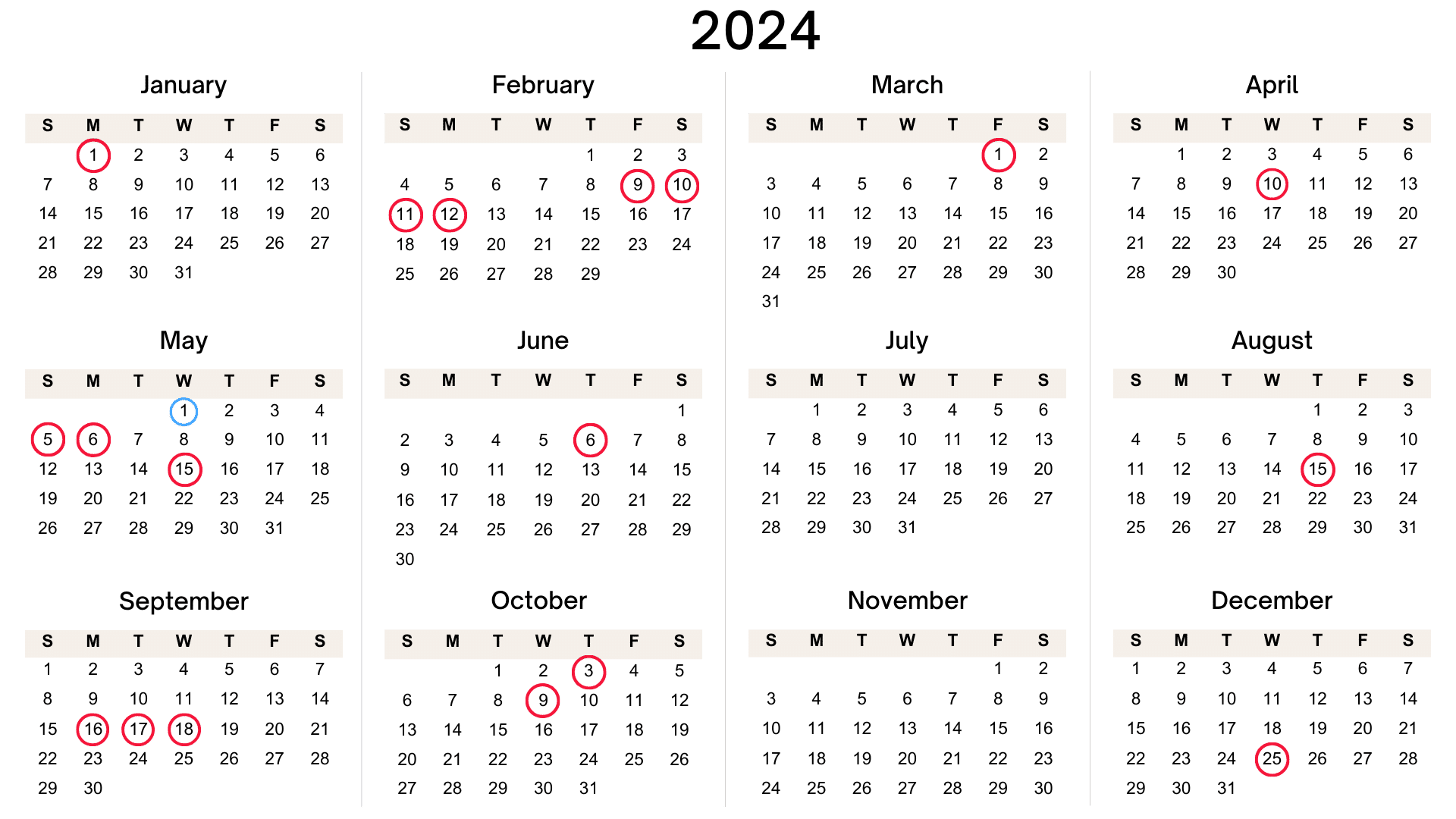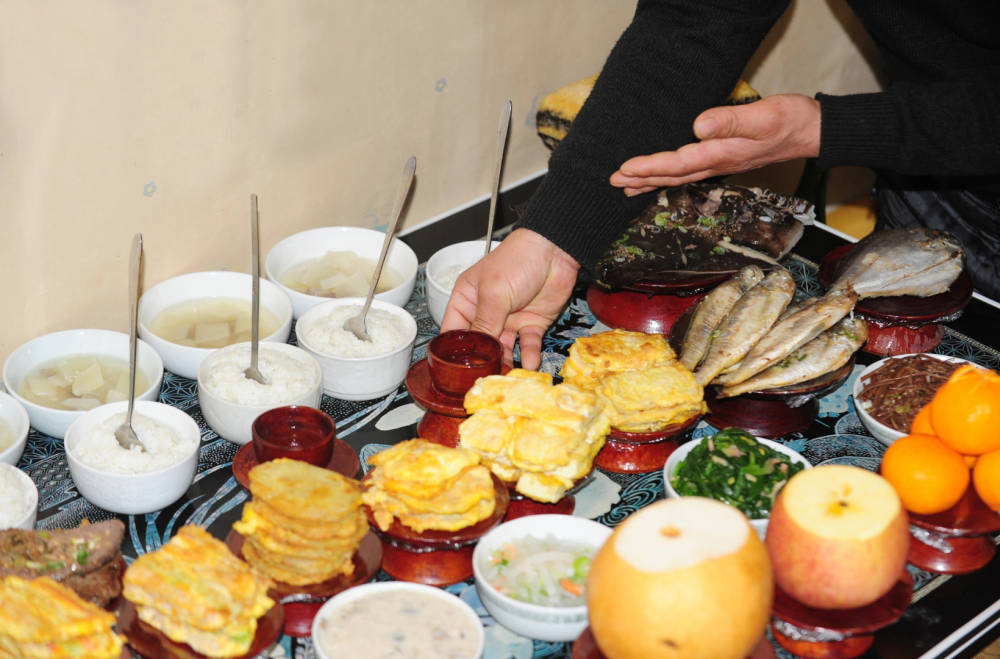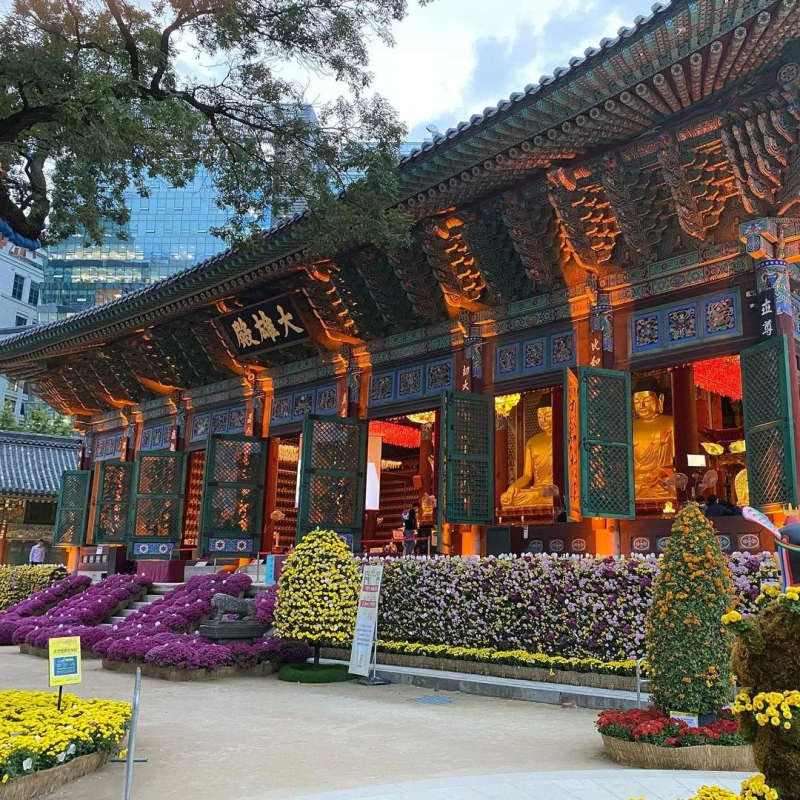
Korean National Holidays 2024 and 2025
South Korea celebrates 11 national holidays annually, including Lunar New Year, Buddha's Birthday, and Chuseok, which shift in date following the lunar calendar. And If some holiday falls on a weekend, a substitute holiday is designated. So, remember to check the holiday dates each year when planning your trip to South Korea. I also share an overview of holidays and traditions. I hope this helps with your travel plans!
Korean Holidays in 2024

Here's a list of the Korean holidays in 2024:
| Date | Weekdays | Holiday |
|---|---|---|
| January 1 | Monday | New Year's Day |
| February 9 to 12 | Friday to Monday | Seollal (Lunar New Year) |
| March 1 | Friday | Independence Movement Day |
| April 10 | Wednesday | National Assembly Election |
| May 1 | Wednesday | International Worker's Day |
| May 5 | Sunday | Children's Day |
| May 6 | Monday | Substitute Holiday for Children's Day |
| May 15 | Wednesday | Buddha's Birthday |
| June 6 | Thursday | Memorial Day |
| August 15 | Thursday | National Liberation Day of Korea (Gwangbokjeol) |
| September 16 to 18 | Monday to Wednesday | Chuseok (Korean Thanksgiving) |
| October 3 | Thursday | National Foundation Day |
| October 9 | Wednesday | Hangul Day |
| December 25 | Wednesday | Christmas |
Korean Holidays in 2025
In case you're planning long term, here's a list of the 2025 Korean holidays:
| Date | Weekdays | Holiday |
|---|---|---|
| January 1 | Wednesday | New Year's Day |
| January 28 to 30 | Tuesday to Thursday | Seollal (Lunar New Year) |
| March 1 | Saturday | Independence Movement Day |
| May 1 | Thursday | International Worker's Day |
| May 5 | Monday | Children's Day, Buddha's Birthday |
| June 6 | Friday | Memorial Day |
| August 15 | Friday | National Liberation Day of Korea (Gwangbokjeol) |
| October 3 | Friday | National Foundation Day |
| October 5 to 8 | Sunday to Wednesday | Chuseok (Korean Thanksgiving) |
| October 9 | Thursday | Hangul Day |
| December 25 | Thursday | Christmas |
A brief summary of holidays in Korea
Because Korean holidays are written in Korean, their names can be confusing. I'll briefly summarize what each holiday celebrates. There are some that are global, and then there are some that are unique to Korea.
🔴 Seollal 설날
The lunar New Year, is celebrated with cultural traditions and family gatherings. This three-day celebration includes the day before and after Seollal. Because it follows the lunar calendar, the date varies every year, usually between late January and early February.
If you're interested in learning more about one of the most important Korean holidays, check out this post📌:

🔴 Independence Movement Day 삼일절
- A national holiday to honor those who sacrificed for Korea's liberation, it commemorates the protests against Japanese rule on March 1, 1919.
🔴 Children's Day 어린이날
- It is a holiday celebrating the next generation. On this day, children receive gifts and enjoy fun activities.
🔴 Buddha's Birthday 부처님 오신 날
The 8th day of the 4th lunar month, is Buddha's Birthday. In South Korea, it became a national holiday in 1975, thanks to the efforts of a Buddhist lawyer who pointed out that only Christmas was recognized as a national holiday.
If you're curious about Buddhism in Korea, consider visiting Jogyesa Temple in Seoul. The location is also convenient for travelers, and you can find a detailed guide to Jogyesa in this post📌:

🔴 Memorial Day 현충일
- It's a day to remember those who died serving the country. A solemn state ceremony with the President is held to honor the fallen. During the Korean War, over 400,000 military personnel died, and about 1 million civilians were killed or injured.
🔴 National Liberation Day 광복절
- Korea was under Japanese colonial rule from August 29, 1910, until its liberation on August 15, 1945, after Japan's World War II defeat. We celebrate this victory annually on August 15th as a national holiday (Gwangbokjeol).
🔴 Chuseok 추석
- It's Korea's Thanksgiving Day on the 15th of August. It celebrates the upcoming harvest and the full moon, bringing families together to eat, honor ancestors, and eat songpyeon (one type of rice cake).
🔴 National Foundation Day 개천절
- Gaecheonjeol means 'the day the heavens opened'. It commemorates the establishment of the first ethnic Korean state in 2333 B.C.
🔴 Hangul Day 한글날
October 9th is the day commemorates the creation of the Korean alphabet, Hangul, by King Sejong during the Joseon dynasty. Hangul is a uniquely Korean writing system that is still in use today.
King Sejong was a great leader who valued education and culture. You can see a statue of him at Gwanghwamun Square in Seoul📌:

- There's also a Korean banknote with King Sejong on it, check it out in this post📌:
🔴 Christmas 크리스마스
Christmas was introduced to Korea by Protestant Christianity in the 19th century. Syngman Rhee, South Korea's first president and a Christian, officially declared Christmas a national holiday in 1949.
Everyone in Korea enjoys Christmas holidays, regardless of religion. You can find out how Koreans celebrate Christmas here📌:
Which Korean Holidays Follow the Lunar Calendar?
There are three holidays in Korea based on the lunar calendar. The dates for these holidays change every year, so make sure to double-check them:
- Seollal (Lunar New Year)
- Buddha's Birthday
- Chuseok (Korean Thanksgiving)